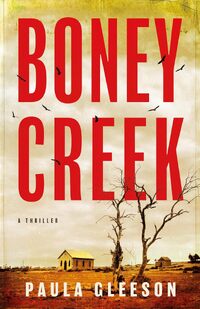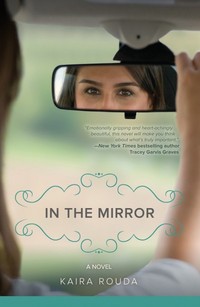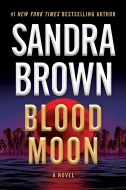 BONEY CREEK |
 Fall headfirst into July’s hottest stories—danger, desire, and happily-ever-afters await. |

Purchase
Real You Publishing Group Women's Fiction Excerpt of In the Mirror by Kaira RoudaRolling over to get out of bed, I caught a glimpse of myself in the mirror and cringed. My reflection said it all. Everything had changed. I looked like death. I blinked, moving my gaze from the mirror, and noticed the calendar. It was Monday again. That meant everything in the real world. It meant groaning about the morning and getting the kids off to school. It meant struggling to get to the office on time and then forcing yourself to move through the day. It meant the start of something new and fresh and undetermined. But Mondays meant nothing at Shady Valley. We lived in the “pause” world, between “play” and “stop.” Suspension was the toughest part for me. And loneliness. Sure, I had visitors, but it wasn’t the same as being surrounded by people in motion. I’d been on fast-forward in the real world, juggling two kids and my business, struggling to stay connected to my husband, my friends. At Shady Valley, with beige-colored day after cottage-cheese-tasting day, my pace was, well – I had to get moving. I supposed my longing for activity was behind my rather childish wish to throw a party for myself. At least it gave me a mission of sorts. A delineation of time beyond what the latest in a long line of cancer treatments dictated. It had been more than 18 months of treatments, doctor’s appointments, hospitalizations and the like. I embraced the solidity of a deadline. The finality of putting a date on the calendar and knowing that at least this, my party, was something I could control. I noticed the veins standing tall and blue and bubbly atop my pale, bony hands. I felt a swell of gratitude for the snakelike signs of life, the entry points for experimental treatments; without them, I’d be worse than on pause by now. I pulled my favorite blue sweatshirt over my head and tugged on my matching blue sweatpants. Moving at last, I brushed my teeth and then headed next door to Ralph’s. He was my best friend at Shady Valley—a special all-suite, last-ditch-effort experimental facility for the sick and dying—or at least he had been until I began planning my party. I was on his last nerve with this, but he’d welcome the company, if not the topic. He was paused too. My thick cotton socks helped me shuffle across my fake wood floor, but it was slow going once I reached the grassy knoll—the leaf-green carpet that had overgrown the hallway. An institutional attempt at Eden, I supposed. On our good days, Ralph and I sometimes sneaked my son’s plastic bowling set out there to partake in vicious matches. We had both been highly competitive, type-A people in the “real” world and the suspended reality of hushed voices and tiptoeing relatives was unbearable at times. “I’ve narrowed it down to three choices,” I said, reaching Ralph’s open door. “’Please come celebrate my life on the eve of my death. RSVP immediately. I’m running out of time.’” “Oh, honestly,” Ralph said, rolling his head back onto the pillows propping him up. I knew my time in Shady Valley was only bearable because of this man, his humanizing presence. Even though we both looked like shadows of our outside, real-world selves, we carried on a relationship as if we were healthy, alive. I ignored the surgery scars on his bald, now misshapen head. He constantly told me I was beautiful. It worked for us. “Too morbid? How about: ‘Only two months left. Come see the incredible, shrinking woman. Learn diet secrets of the doomed,’” I said, smiling then, hoping he’d join in. “Jennifer, give it a rest would you?” Ralph said. “You don’t have to be so testy. Do you want me to leave?” I asked, ready to retreat back to my room. “No, come in. Let’s just talk about something else, OK, beautiful?” Ralph was lonely, too. Friends from his days as the city’s most promising young investment banker had turned their backs—they didn’t or couldn’t make time for his death. His wife, Barbara, and their three teenage kids were his only regular visitors. Some days, I felt closer to Ralph than to my own family, who seemed increasingly more absorbed in their own lives despite weekly flowers from Daddy and dutiful visits from Henry, my husband of six years. Poor Henry. It was hard to have meaningful visits at Shady Valley, with nurses and treatments and all manner of interruptions. We still held hands and kissed, but intimacy—even when I was feeling up to it—was impossible. So, there we were, Ralph and I, two near-death invalids fighting for our lives and planning a party to celebrate that fact. It seemed perfectly reasonable, at least to me, because while I knew I should be living in the moment, the future seemed a little hazy without a party to focus on. “Seriously, I need input on my party invitations. It’s got to be right before I hand it over to Mother. I value your judgment, Ralph; is that too much to ask?” “For God’s sake, let me see them.” Ralph snatched the paper out of my hand. After a moment, he handed it back to me. “The last one’s the best. The others are too, well, self-pitying and stupid. Are you sure you can’t just have a funeral like the rest of us?” I glared at him, but agreed, “That’s my favorite, too.” Mr. & Mrs. E. David Wells request your presence at a celebration in honor of their daughter Jennifer Wells Benson Please see insert for your party time Shady Valley Center 2700 Hocking Ridge Road RSVP to Mrs. Juliana Duncan Wells No gifts please—donations to breast cancer research appreciated. # At first, I had been incredibly angry about the cancer. Hannah’s birth, so joyous, had marked the end of my life as a “normal” person. Apparently, it happened a lot. While a baby’s cells multiplied, the mom’s got into the act, mutating, turning on each other. Hannah was barely two weeks old when I became violently ill. My fever was 105 degrees when we arrived in the ER. I think the ER doctors suspected a retained placenta or even some sort of infectious disease, although I was so feverish I can’t remember much from that time. All I remember was the feeling of being cut off from my family—Henry, two-year-old Hank, and newborn Hannah—and marooned on the maternity ward, a place for mothers-to-be on bed rest until their due dates. That was hell. At 33, I was a pathetic sight. My headache was so intense the curtains were drawn at all times. I didn’t look pregnant anymore, so all the nurses thought my baby had died. That first shift tip-toed around me, murmuring. By the second night, one of them posted a sign: “The baby is fine. Mother is sick.” It answered their questions since I couldn’t. It hurt my head too much to try. By the third day, my headache had receded to a dull roar. Surgery revealed that there was no retained placenta after all. I was ready to go home to my newborn and my life. So with a slight fever and no answers, I escaped from the hospital and went home to a grateful Henry and a chaotic household. I was weak and tired, but everyone agreed that was to be expected. I thanked God for the millionth time for two healthy kids and my blessed, if busy, life. And then, not two weeks later, I found the lump. Not a dramatic occurrence, really, at least not at first. I was shaving under my arm, and I happened to bump into my left breast with my hand. I could feel an odd mass that hadn’t been there before. When I pushed on the top part of my breast, closest to my underarm, it hurt. I freaked out and called for Henry. “I’m sure it’s fine,” he reassured me while his eyes revealed his own fears. “We’ll make an appointment to have it checked out first thing tomorrow, OK?” Our eyes locked then, and in that moment, I think we both knew. It wasn’t, of course, fine. When the radiologist at the Women’s Imaging Center read the mammogram, she called my doctor right away. The solid, spider-webby mass had tentacles spreading through my left breast. Deadly, dangerous tentacles full of cancerous cells. Surgery confirmed that what I had felt was a malignant mass that had already begun to metastasize to my lymph nodes. They moved me to the cancer floor and began treatments immediately, and that’s where I’d been, in body or spirit, for more than a year. Ralph was the one to describe them as “circle mouths”: the initial reactions of family and friends expressing sympathy for our rotten luck. When the doctors finally figured out what was wrong with me, my family was the first to respond with their blank stares and circle mouths. “OOOOOO, Jennifer, we’re sOOOOOO sorry.” But, really, what else could we expect? Before I had cancer, I know I probably reacted the same way. Initially, I was caught up in the angry stage of grief, enveloped by it. It ate away at my soul and left me spent with useless emotion. Why me? What had I done differently than anyone else I knew? Did I drink too many Diet Cokes? Eat too much McDonald’s? Did I live downstream from a pesticide runoff? Was I a bad person? Why didn’t my children deserve to grow up with a mother? Why? Exhausted by remorse, I eventually found myself safely encased in quasi-acceptance that wrapped around me like a blanket, smoldering the dreams of middle– and old age, and draping the vision of my children as teenagers and adults, tamping out hope. Hope. I knew my family thought the party was a sign that I had given up, that I was welcoming death, maybe even hastening it a bit by my bold invitation. And yet, hope to me was just another four-letter word without substance. I needed a reason to hang on, to continue what had become a painful and tedious daily struggle. For me, the best thing about life was the people in it. Friends, lovers, teachers, role models—they all made me the person I had become. I needed to reconnect with the living if only for a single night, to be assured my life had meant something and I was not as forgotten as I felt in my institutional isolation. No, the party was not a sign of lost hope, but the opposite—a desperate gathering of the people from my past, as if each held a piece of some cosmic puzzle that could be reconfigured into something whole—and healthy. Hope. “It looks nice, Jennifer, really,” Ralph said, jarring me from my reverie. “Why are your parents hosting it, though? Why not you and Henry?” “Ah, because Juliana Duncan Wells would never forgive me if I denied her the chance to host a party. She’s a professional hostess, you know.” Ralph chuckled weakly. His brown eyes were lifeless, tired. I inspected his pale, thin, worn face more closely. His head, which had been shaved and cut open for multiple surgeries, was now more lumpy and grooved with scars than round. He was an attractive man, but he had a prominent dent over his left eye, swooping to his ear. My scars were tucked away inside my cozy sweatshirt. My head was newly covered in short curly blonde hair. It had been straight before chemo. I looked away and asked, “What’s wrong today, Ralph? You look really sad. New meds?” Ralph’s room sported the same fake leather chairs arranged around an imitation wood table that mine did. His naugahyde was burgundy; mine was brown. Other than that, our rooms were identical, with green-striped walls and white wicker stands on either side of white bedside tables; a fake cheeriness that tried to mask the anguish of the patients who resided here. I made my slow trek to one of the chairs and sank into it. “It’s nothing, Jennifer, really,” Ralph answered unconvincingly, clasping his thin hands together on his stomach. I noticed he had moved his platinum wedding band to his middle left finger. I knew he was lying, but I also knew enough not to pry. Ralph Waldo Erickson—his real name, and his parents knew better—had discovered cancer when he felt a pain in his right cheek while shaving. He had a headache, too, both of which his doctor dismissed as a sinus infection when he first called. A few days later, he woke screaming in the middle of the night, and was rushed to the ER, where an MRI revealed a malignant growth the size of a lemon. On the operating table, the skin of his face was pulled to the side while the doctors cut out the tumor. Success—until they found more tumors. And more still, after radiation, after chemo. He was forty-five years old. Six months earlier, he’d had a headache. Now, he had four months, tops. After a few minutes of silence, he suddenly asked, “Did you know it’s the fall harvest?” with his eyes sparkling and his hands gesturing in front of him. “I mean, all those years I drank wine—loved wine—and I didn’t even take the time to learn about it. You know, learn how they make it, when they pick the grapes. God, that’s sad. They’re out there right now, in California, France, even Ohio for God’s sake, just outside our windows, and I never bothered to learn a thing about it. Sure, I did the touristy winery hop in Napa and Sonoma a time or two. But, this is harvest season! The most beautiful time of the year, and I never bothered to be a part of it—you know?” Ralph finished and looked up at the ceiling, clasping his hands again. I’d never noticed how long his fingers were before. “So, add it to our list, Buddy, OK?” I said, gently, knowing it wouldn’t really help, knowing the impossibility of Ralph ever leaving Shady Valley, much less visiting Napa Valley for the harvest. “Hey, it’s treatment time. I need to go back. Buzz me when you feel like it.” Ralph didn’t answer, and I didn’t really expect him to. We all went through depressions at Shady Valley, triggered by almost anything: harvest time, or an especially beautiful orange-purple sunset. It was hard to keep your spirits up all the time. He’d be fine in a little while. I made my way slowly back across the slick floor and padded down the thick green carpet back into my room. Promptly at four, Nurse Hadley arrived with her arsenal of vials and needles, all part of a new therapy I was determined to try. “Well, aren’t we pretty in blue,” she said, as if speaking to a child. “My veins do look stunning today,” I agreed. Her eyes darted to mine and then away. Heck, they are nice veins, I thought, as I prepared to receive the latest experimental drug with a mixture of dread and barely detectable hope. The side effects might be hell—but still, this could be the one. Excerpt from In the Mirror by Kaira Rouda |
|
| |||
|
||||



 © 2003-2025
© 2003-2025